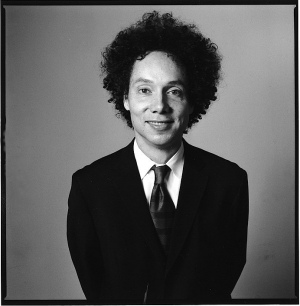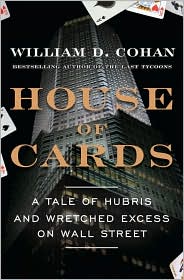
Although I haven't "officially" watched any movies for the blog, I did catch the last hour or so an ESPN documentary called The Lost Son of Havana. It's about baseball legend Luis Tiant, one of the last significant players to leave Cuba legally to play baseball in this country. He spent some of his best years with the Red Sox in the 70's, and although I was not yet around to watch, I have been made well aware of his importance by my more experienced bretheren.
The documentary was fantastic. It tells his complete story, but focuses on his return to Cuba after an unplanned 40 year exile caused by chilly relations between Castro and the U.S. I was near tears several times as he was reunited with old friends and teammates after decades apart and discussed with them the plight of Cubans. It was both touching and eye opening.
I always knew Tiant as the colorful guy with the cigars who hung around the team once in a while, but The Lost Son of Havana clued me in to the fact that there is much more to this man, and these additional insights go a long way towards explaining his success on the mound despite pitching without the hardest fastball or the sharpest curve. He simply didn't know how to quit and enever gave in. I can't wait to catch the documentary (part of ESPN's 30 in 30 series) in its entirety at some time in the future. Highly recommended, especially for baseball fans.

When Genius Failed is the story of Long-Term Capital Management, the giant hedge that infamously imploded in the late 90's. Sounds dry, expecially to those who do not care about finance, but I was very engaged by the story and the lead characters. Lowenstein paints a very clear picture of the major players before recounting their actions, which makes all the difference in the world as far as pulling his readers in. I still wouldn't recommend it to anyone who doesn't know or care what fixed income arbitrage is, I think that anyone who aspires to find a career in the hedge fund industry should read this book. It will help maintain your humility, even in the face of unbridled success. The LTCM guys, by many accounts, most likely including their own, were too smart to screw up. Many of them are MIT PhD's and Harvard professors. But, in the end, even a handful of the smartest guys and best investors in the world managed to lose the vast majority of their net worth in a very short timeframe.

In case you are unfamiliar, the man in that photo above is Malcolm Gladwell, author of national bestsellers Blink, The Tipping Point and Outliers. I have read Blink and The Tipping Point this summer. Both books frustrated me a little bit while reading them. Gladwell returns over and over again to the same examples that back up his thesis as he adds new examples to build his case. It feels a little repetitive. But for those of us who read like I do, in fits and starts, it actually works. To be perfectly honest with myself, I needed to be reminded of each new anecdote's connection to those that came before.
Gladwell also loves pointing out the obvious. While reading, I often feel like saying "no sh*t, Malcom". But his messages stick with you afterwards. He manages to put our subconsious thoughts and instincts into words. And when thinking about his books in retrospect, I realized that he actually got me to think about my surroundings differently, despite my skepticism when reading. If I were trying to spread an idea, I would absolutely use the philiosophy of The Tipping Point to do so. I might have done the same thing had I not read the book, but I wouldn't have been able to have explained as eloquently why.
So, why read a 200 page book (which are very easy reads, by the way) when you can sum up his theses in one sentence? Because by giving so many thought-provoking examples, and by repeating the main ideas over and over again, it actually SINKS IN. In fact, reading The Tipping Point probably had a greater effect on me than any number of marketing lectures would have. Outliers is currently at the top of my reading pile, and I expect much of the same feelings after reading it.
If you have never read a Gladwell book but are interested, I recommend starting with The Tipping Point.
House of Cards by William Cohan is the "inside story" of the demise of Bear Stearns, the venerable investment bank that was the first domino to fall in the credit crisis of 2008. The story is divided into two parts, and the order in which they are presented is curious. The first section of the book is a detailed account of the 10 fateful days in early 2008 that it took for Bear to go from a fully functional, money-minting investment bank to insolvent. This is followed by a history of the firm, from it's earliest days through the departure of its notorious leader, Jimmy Cayne, just months before the end.
I almost didn't make it through the first part. On more than one occasion I put the book down and had to basically force myself to pick it up again. This section was confusing as hell. Too many names were being thrown around and I didn't have a sense of who any of them are. Sections were poorly written. There were sentences I had to read two or three times in order to divine their point. And worst of all, there were two blatant mistakes I discovered within the first 20 pages or so. I understand that when we are dealing with current events, books are rushed into print in order to capitalize on newspaper headlines, but these mistakes are some seriously weak sauce.
Then something strange happened when the book takes a deep breath and jumps back in time 80-odd years: It gets good! Cohan starts building up the personalities of the larger-than-life characters in Bear's long history. And it's so much more interesting to hear about these people's actions when I have some insight into what type of person they are and what roads they travelled to get to their current position.
Once I read through the fascinating history of the firm, I felt like I needed to read the first section of the book again. Now that I knew who Jimmy Cayne, Ace Greenberg and Alan Schwartz were, their actions during the crisis would have held much more meaning. But I just couldn't bring myself to endure the first part again. I didn't want to give Mr. Cohan the satisfaction.
I can understand the reasons for putting the end of the story first. There are certainly other well regarded works of literatureand film that have succeeded using that playbook. But it does not remotely work for House of Cards, unless the reader is a former Bear employee who knows who all these people were already. When Genius Failed, was constructed perfectly. It gave us a tiny taste of the endgame before whisking us back through time to the beginning of the story. Then when it re-reached the turning point it exposed us to in the intro, the unfolding scene made much more sense. I loved being given a glimpse of the dire circumstances in which the firm would end up because it altered my perspective when reading through the heyday of the firm. I wish House of Cards had been written this way.
-----------------------------------------------------------------
And now for something totally unrelated...One of the worst people on all of television has to be Nancy Grace. I can't take any more of her loaded questions and cutting-off of guests. And she acts like a crusader against all the world's injustices and ills, but I think she just loves the spotlight and/or yelling at people from a position of power. Otherwise she would not have written a novel (a vanity project if there ever was one) and would have spent that time investigating the cases that she loves shouting about so much. Or at least she could have written about something related to her work.
I cannot stand overly self-righteous people, and Ms. Grace is a paragon of self-righteousness. She loves oversimplifying things into black and white, rather than into the many shades of gray that are actually present. She loves to pick people apart without ever putting herself out there to be judged by those like herself. I hate this woman.
To me, she is like Joe Morgan, Tim McCarver, Scott Van Pelt and Glenn Beck: She must have a fanbase in order to stay on the air, but the identities of those that count themselves among her fanbase remain a mystery to me.

No comments:
Post a Comment